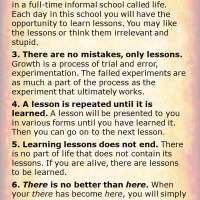- Written by johnkremer
- On Jan 13 2013,
- In Internet Marketing
Everything You Need to Know About Sleeplessness
You’ve heard about sleep problems and you have probably suffered a few sleepless nights yourself, but did you know all the facts? Did you realize just how pervasive it is and how many ways it affects us?
Common causes of sleeplessness: inappropriate sleeping environment, anxiety, mood disorders, depression, grief, jet lag, dehydration, alcohol withdrawal, overeating, eating at night, drugs, strong coffee or cola, emotional excitement, euphoria.
35% of Americans sleep 8 hour or more per night during the work week.
56% had one or more symptoms of insominia a few nights a week.
60% of children, especially teenagers, report being tired during the day.
Women suffer more insomnia than men.
As men go from age 16 to 50, they lose 80% of their deep sleep.
Hormonal events like menstruation, pregnancy or menopause can disturb women’s sleep.
100,000 car accidents occur every year because of drowsy driving.
U.S. industry loses about $150 billion every year because of sleep-deprived workers.
Sleeplessness causes accidents, makes you dumber, can lead to serious health problems, kills your sex drive, causes depression, ages your skin, makes you forgetful, can make you gain weight, increases the risk of death, and impairs judgement.
Common sleep disorders include insomnia, sleep apnea, restless leg syndrome, narcolepsy, and sleepwalking.
Here’s how to get a good night’s sleep:
1. Manage your stress.
2. Eat a light snack of protein and complex carbs an hour before sleeping.
3. Don’t watch television late at night.
4. Establish consistent sleep and wake schedules, even on the weekends.
5. Use your bedroom only for sleep and sex.
6. Limit daytime naps.
7. Avoid caffeine, heavy foods, spicy foods, and alcohol 4 to 6 hours before bedtime.
8. Exercise in the late afternoon.
Charity Showcase
UNICEF, a United Nations group, fights for the survival and development of children around the world: no starving children, no exploited children, no children denied education, and no children deprived of clean water. Donate via the U.S. Fund for UNICEF via http://www.unicefusa.org or by calling 800-4UNICEF (800-486-4233).
Curator: John Kremer
Related
by johnkremer
Search This Site
Does This Interest You?
RadioPRGuy.com
“When you decide that you’re ready to start dealing with radio stations directly, get Alex Carroll’s program. His top radio show database, tapes of dealing with producers, and examples of actual talk shows will help you to become a radio talk show star.” — John Kremer
CLICK HERE FOR FREE DETAILS
Internet Marketing Infographics
-
Infographic: How LinkedIn Works
Sep, 27, 2012
-
Tools and Resources: Create Images for Socia...
Oct, 08, 2014
-
Twitter Hashtags: What You Need to Know
Dec, 31, 2012
-
GIF Infographic: Every Second on the Web
May, 27, 2014
-
Cheat Sheet: Social Media Cover Photos
Mar, 26, 2013
-
Book Marketing: How to Sell Multiple Copies ...
Aug, 24, 2013
-
Infographic: The Top 10 Things You Can Do to...
Sep, 29, 2012
-
A Look Back: Facebook vs. Google
Dec, 15, 2012
-
How to Create an Effective LinkedIn Company ...
Feb, 08, 2013
-
Infographic: Free Audio Book Downloads
Feb, 28, 2013



























